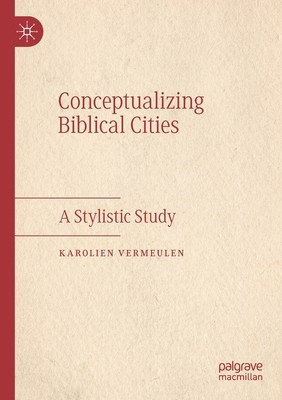
- Išsiųsime per 10–14 d.d.
- Autorius: Karolien Vermeulen
- Leidėjas: Palgrave Macmillan
- ISBN-10: 3030452727
- ISBN-13: 9783030452728
- Formatas: 14.8 x 21 x 1.7 cm, minkšti viršeliai
- Kalba: Anglų
- Extra -15 % nuolaida šiai knygai su kodu: ENG15
Atsiliepimai
Aprašymas
This book offers a comprehensive treatment of the city image in the Hebrew Bible, with specific attention to stylistics. By engaging with spatial theory (Lefebvre 1974, Soja 1996), the author develops a new framework to analyse the concept of 'city', arguing that a set of conceptual images defines the Biblical Hebrew city, each of them constructed using the same linguistic toolkit. Contrary to previous studies, the book shows that biblical cities are not necessarily evil or female. In addition, there is no substantial difference between the metaphorical images used for Jerusalem and those used for other cities. This book will be of interest to students and scholars of stylistics, urban studies, critical-spatial theory and biblical studies (especially Biblical Hebrew).EXTRA 15 % nuolaida su kodu: ENG15
Akcija baigiasi už 5d.02:46:36
Nuolaidos kodas galioja perkant nuo 10 €. Nuolaidos nesumuojamos.

- Autorius: Karolien Vermeulen
- Leidėjas: Palgrave Macmillan
- ISBN-10: 3030452727
- ISBN-13: 9783030452728
- Formatas: 14.8 x 21 x 1.7 cm, minkšti viršeliai
- Kalba: Anglų




Atsiliepimai